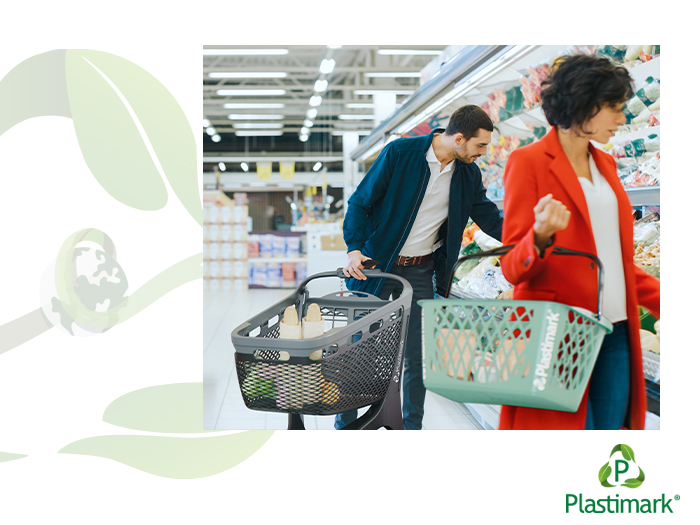Talking about plastic is complicated today because this material is increasingly subject to prejudice and stigmatisation.
But if on the one hand there is an urgent need to communicate the environmental problem linked to the misuse of plastic, on the other hand it is essential to raise awareness of consumption patterns and the advantages – also sustainable – of this material.
For the retail sector, for example, choosing plastic shopping trolleys is a sign of environmental awareness and a commitment to sustainability.
Plastic shopping trolleys are more resistant to weather, wear and tear and less prone to theft. Longer service life therefore means savings in both production and economic terms.
Plastic products are also completely modular and customisable, which allows partial replacement of components, greatly extending end-of-life. In addition, recycling this material has less impact on the atmosphere than metal and guarantees high levels of sustainability.
To speak of ‘plastic’ is reductive because there are countless polymeric materials available. Plastimark’s R&D department and the technological advances of recent years have developed totally eco-friendly alternatives.
From recycled plastics from industrial or domestic post-consumption to a new material made by recovering waste abandoned in the seas and beaches.
We must therefore be careful about generalising when talking about the problems associated with plastic, when in reality its use can often be a resource.
Large retail brands, increasingly aware of the environmental impact of their shops, are increasingly opting for solutions such as Plastimark trolleys to tangibly communicate their sustainable commitment to customers, increasing their loyalty, and also to optimise resources and costs that undeniably affect a brand’s success.
